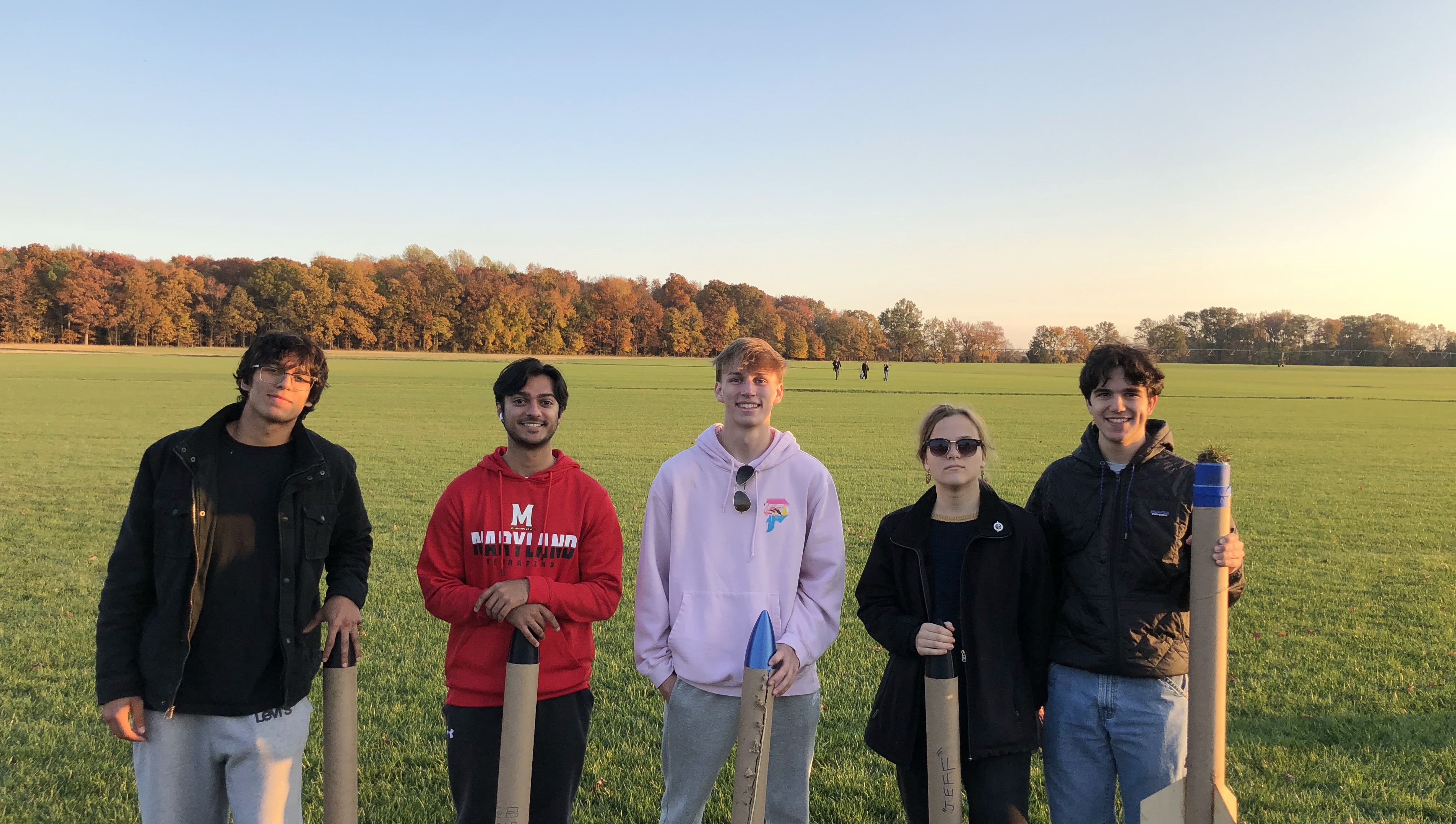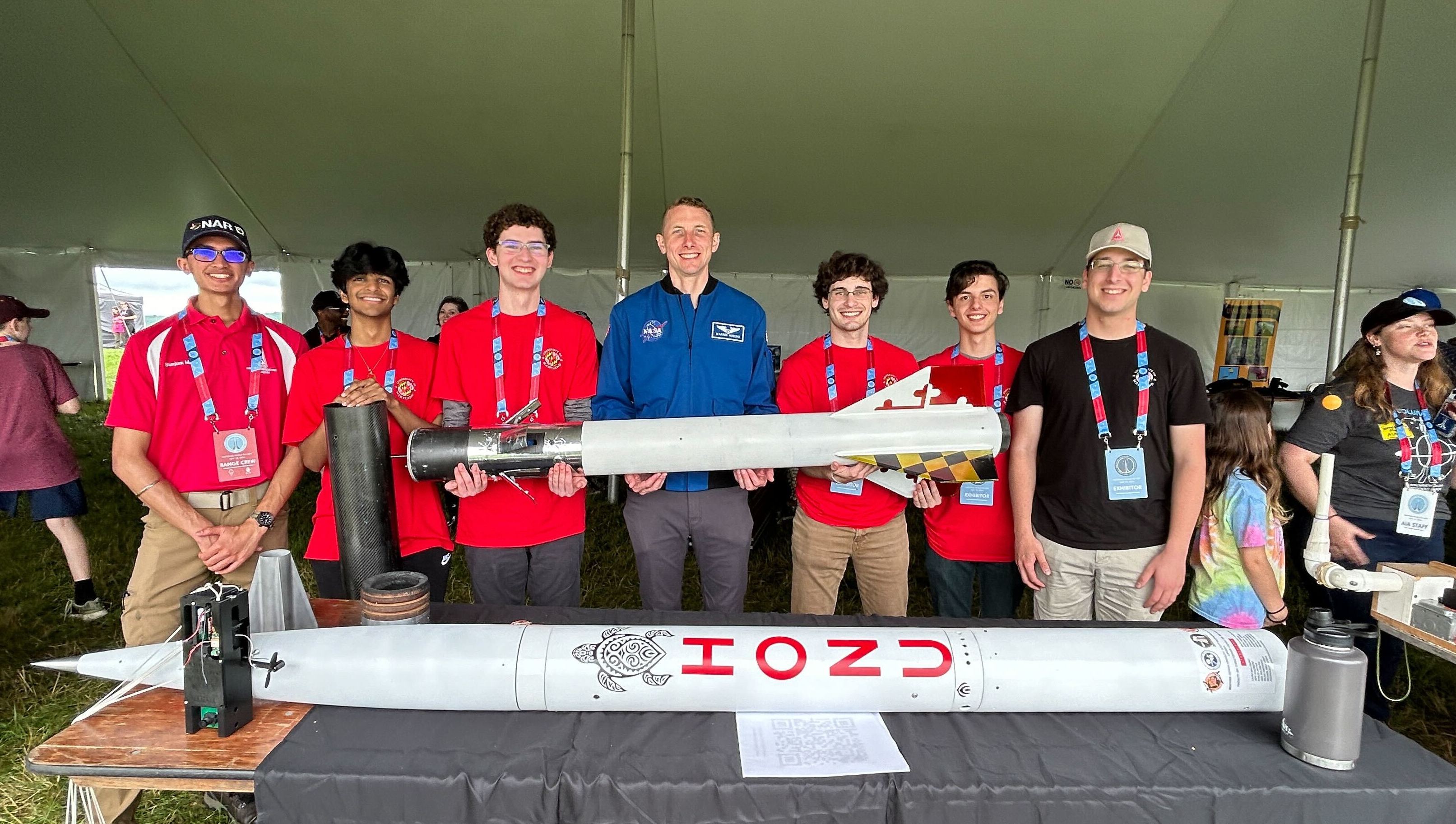Terrapin Rocket Team
The Terrapin Rocket Team (TRT) is a student-run organization composed of cross-disciplined undergraduate and graduate students whose members are united by a shared passion for rocketry. Our organization designs, builds, and launches high-powered rockets on a monthly basis with the primary goal of competing in the International Rocket Engineering Competition (IREC).
Our Mission: Learning by Doing
Our team’s mission goes beyond a simple love for rocketry—TRT is a platform for enhancing our members’ confidence and skills, both technical and interpersonal. We believe that true learning happens through experience, which is why we provide hands-on opportunities in aerodynamics, propulsion, avionics, and systems engineering. By tackling real-world challenges, our members develop problem-solving abilities that extend beyond the classroom, preparing them for careers in the aerospace industry. We also hold diversity and equal opportunity in high regard, offering free rockets and launch opportunities to students across all majors and backgrounds. By fostering an inclusive environment, we ensure that every aspiring rocketeer has the chance to learn, contribute, and inspire future generations.
A Legacy of Excellence
In June 2024, the team soared to victory at IREC in Las Cruces, New Mexico. Competing against over 120 universities from around the world, we placed 1st overall and claimed the 2024 Genesis Cup Trophy. This achievement marks a meteoric rise for our team, which climbed from placing in the 30s to overall champion in just two years.
Our success is built on a hardware-rich culture that emphasizes continual testing. Engineers learn best by doing and with monthly test launches and over 50 certification flights, we ensure that every member has the opportunity to build and test flight hardware and software.
Why Your Support Matters
As a student-run organization, TRT relies on funding to continue pushing the limits of rocketry. Your contributions help us:
- Provide materials for our certification program, allowing members to design and build their own rockets.
- Support travel and competition on an international stage at the International Rocket Engineering Competition.
- Inspire the next generation of engineers and innovators through outreach events and workshops.
Your support fuels the future of aerospace by empowering students to explore, design, and build. Together, we can continue to break barriers and reach new heights.
If you would like to learn more, please see our website or reach out to us at terrapinrocketry@gmail.com.
Thank you for being part of our journey!
$10
Jr Level 1 Certification
A donation of this amount will go towards buying basic materials and parts for our various teams such as epoxy, gloves, and paper towels.
$25
Level 1 Certification
Donors giving this amount will help to cover the cost of competition registration fees! Donors will get their name in small text on the competition rocket!
$50
Level 2 Certification
A donation of this amount will help the team provide components and motors to team members to earn their high power certifications. Donors will receive their name in medium text on the rocket!
$100
Level 3 Certification
Donors who pledge this amount will help the team purchase motors and motor chemicals for test flights of the competition rocket. You will receive your name in large text on the competition rocket!
$500
Class 3 Project
By donating this amount you are helping the team cover costs to travel across the country to attend the competition. You will receive your name in large text on the rocket and a social media shoutout!
$1,000
Spaceshot
A generous donation of this amount will help cover a large portion of the expenses for travel and construction of the entire rocket. You will receive your name in very large text on the rocket, have your name read out before the launch of the rocket, and a social media shoutout!








